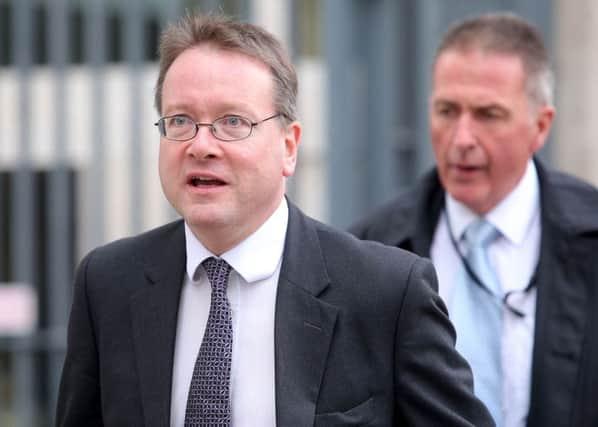Attorney General sends Stormont mess to Supreme Court - but civil service not involved


Last month, the Northern Ireland Civil Service decided not to appeal a Court of Appeal judgment which drastically limited their ability to govern Northern Ireland in the absence of either devolved or direct rule ministers.
The judgment, which upheld an earlier ruling of the High Court, stated that a senior civil servant did not have the power to decide to grant planning permission for a huge and controversial incinerator on the outskirts of Mallusk.
Advertisement
Hide AdAdvertisement
Hide AdThe implications of that decision reached across every Stormont department because contained within the judgment by the Lord Chief Justice and two Appeal Court judges were the words: “Any decision which as a matter of convention or otherwise would normally go before the minister for approval lies beyond the competence of a senior civil servant in the absence of a minister”.
Civil servants believed that clarified beyond doubt that they could not take ministerial decisions and decided not to appeal the judgment, something which heaped pressure on the secretary of state to intervene by putting in direct rule ministers who could decide on pressing issues.
But yesterday Attorney General John Larkin revealed that he does not accept that the judgment brings definitive clarity and has referred a series of questions about the powers of civil servants to the Supreme Court.
Although Mr Larkin was appointed by the then Executive and when there is an Executive he acts as its chief legal adviser, he is in this instance acting under his own independently-exercised powers as attorney general.
Advertisement
Hide AdAdvertisement
Hide AdA spokesman for The Executive Office, said last night that it had no involvement in the case which was “a matter entirely for the attorney general”.
Mr Larkin’s challenge is not in itself an appeal of the incinerator decision and if the Supreme Court does rule that civil servants can take decisions normally reserved for ministers, it would not automatically allow that to be built.
However, it would allow civil servants to then take a fresh decision on that and other major political issues.
Mr Larkin’s intervention centres around five technical legal questions which question the powers of civil servants acting without a minister.
Advertisement
Hide AdAdvertisement
Hide AdThe referral to the Supreme Court has been made under schedule 10 of the Northern Ireland Act 1998, which says that the Attorney General “may refer to the Supreme Court any devolution issue which is not the subject of proceedings”.
His questions focus on the application of the ministerial code in the absence of ministers and whether the requirement for ministers to refer controversial issues or decisions which impact on more than one department to the Executive apply to the civil service where there was no minister.
If the law does require controversial decisions to be referred to the Executive, then in the absence of an Executive it is impossible for those decisions to be taken.
In a statement to the BBC, Mr Larkin said that he took no “formal position on the planning merits” of the incinerator decision, but wants to clarify the wider ramifications of the ruling.
Advertisement
Hide AdAdvertisement
Hide Ad“I do consider, with respect, that the decision of the Court of Appeal is wrong in its interpretation of section 28A of the Northern Ireland Act 1998,” Mr Larkin said, adding that his intervention “offers the Supreme Court the opportunity to give us authoritative guidance about the powers of departments to make important decisions”.
The decision to challenge the Court of Appeal ruling may have political implications, in that it may allow Secretary of State Karen Bradley to argue that there is now a potential route to allowing civil servants to act as ministers and therefore direct rule is not the last resort available.
However, even if the Supreme Court was to find that civil servants could act as ministers by taking controversial political decisions, that judgment is unlikely for several months.
Until then, civil servants are operating to the law as it has been interpreted by Northern Ireland’s highest court. In some cases, civil servants are choosing to take decisions normally reserved for minsiters – such as opening a flood compensation scheme earlier this month – where they believe there is little realisitic prospect of their decision being challenged.
Advertisement
Hide AdAdvertisement
Hide AdBut other civil servants are adopting a rigorous interpretation of the law, leaving major decisions piling up untaken.
Last month, Stormont Castle accepted that the ruling “makes [officials] scope to act even more constrained”.